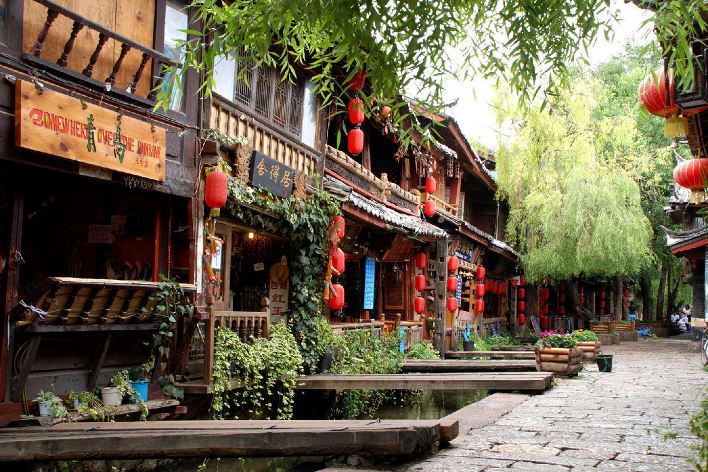
Do you plan to visit China and want to get some better bargaining skills?
The Chinese are way more used to bargaining than many foreigners. Therefore, it can be worthwhile to learn some standard phrases and common pitfalls beforehand.
This can save you a decent amount of money as it’s not rare that shopkeepers add markups in the multiples.
In this article, you’ll learn more about bargaining in China and what you should do to get the lowest price possible.
Is it difficult to bargain in China?
In short, yes it is. Why? First of all, this is not only prevalent when walking to local markets to buy clothes, for example. The Chinese are well-known for being persistent and skilled in negotiations, this also applies to the corporate world.
If you join a Chinese to a local market, you’ll notice that the haggling-process and atmosphere can become a bit tense. Many westerners aren’t used to haggling in this way, a reason why many don’t get the upper and pay a higher price.
How do I know if a product is overpriced in China?
It’s not easy to know whether a product is overpriced, the easiest way to find out is to bring a local friend, colleague, or whatever it might be. You can also do some online searching.
Shoes can have markup 3-10 times higher than the actual price. For example, it’s not rare that foreigners pay 500 Yuan for a pair of shoes that could be bought for as little as 100 Yuan.
What are some common Chinese bargaining phrases?
So, before you visit a Chinese market, for example, it can be worthwhile to bring a dictionary as well. To give you a helping hand, I’ve included some common standard phrases that you can use to express that a product is too expensive.
If you’re not a Chinese speaker, it’s best to keep the sentences as short as possible, as you will probably not get all the tones right:
- 太贵了, Tài guìle = Too expensive
- 可以算便宜一点吗?,kě yǐ suàn pián yí yī diǎn mā? = Can you give me a better price?
- 底价是什么?,Dǐ jià shì shén me? = What is your lowest price?
- 底价!底价!, Dǐ jià! Dǐ jià! = Lowest price! Lowest price!
- Don’t buy a product in the first place you find it. Visit a handful of shops to get a better understanding of how much you should pay for the product.
- Be persistent and willing to spend some time in the shops. Sometimes, it can take up to half an hour to reach a decent price.
- Don’t show emotions. This is similar to when looking for a new apartment. If you get too excited, the landlord/shopkeeper will immediately notice and offer a higher price.
- Continue saying that it’s too expensive (太贵了, Tài guìle) and point out some flaws with the product.
- Try to buy more products for a discount. You can bundle products together and try to reduce the price.
What should I do if a shopkeeper reject my price proposal?
If the shopkeeper is stubborn and won’t reduce the price, even if you know that you should pay less, the most effective way is to just leave the shop. If you’re lucky, the shopkeeper will chase you down and yell “Okay, Okay!”.
If that doesn’t happen, and you still want to buy the product, you can return to the shop after a while, even if that will result in some face loss. At the end of the day, you’ll probably only see the shopkeeper once.
However, you can also walk to other shops and see what prices they offer. You can then later return to the same shop and said that you got better offers. The only problem here is that shops sometimes collaborate and share prices with each other by word-of-mouth, or sometimes even calling each other.
Do they speak English at Chinese markets?
Some do, some not. In general, they don’t speak English and you should be prepared to use body language (pointing, shaking your head, walking away, etc). Much of the communication will be managed using calculators and fingers.
Can I use US dollars when shopping in markets in China?
No, shops don’t accept US dollars and you should withdraw some RMB before visiting the shops.
What are some common scams at markets in China?
One of the most common scams is the tea scam. I don’t refer to the scam where young students bring you to a local tea-shop where they charge you thousands of RMB for a pot of tea.
What I refer to is tea being sold much above the market price.
If you go to a local village, for example, they might say that a certain can only be bought there, just because it’s produced there. Later when you arrive in the city center, you find out that the same tea can be bought in various shops and for just half the price.
You should also be careful when buying leather products as shopkeepers might claim that the leather products are real, but in fact, they aren’t.
Be street smart and you’ll hopefully avoid coming across scams like this.
What are some general tips when bargaining in China?
Photo Credits: ![]() Silk Road – Market by MR FOOJI
Silk Road – Market by MR FOOJI



